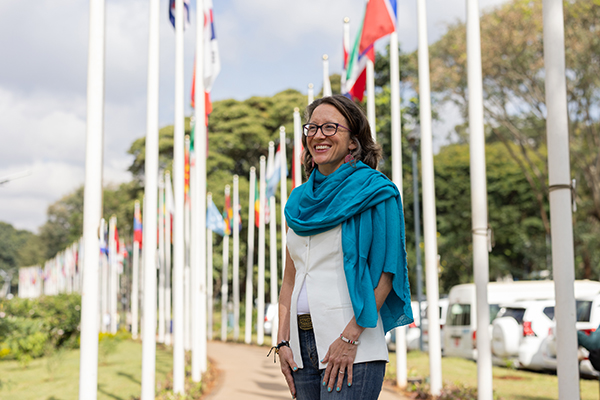
By Lis Mullin Bernhardt, Freshwater Unit, Marine and Freshwater Ecosystems, United Nations Environment Programme
In January, a professional dream came true for me. After more than five years of working toward the moment, two global organizations I believe deeply in – Rotary International and the United Nations Environment Programme – agreed to enter into a strategic partnership to empower Rotary members to clean up, protect, and monitor local waterways around the world.
I am a big believer in targeted, science-based information leading to local action that brings about positive global change, including for the environment.
My relationship with Rotary and the UN both began more than 20 years ago, when I received an Ambassadorial Scholarship through the Rotary Foundation to pursue graduate studies at the Geneva Graduate Institute in Switzerland, putting me on a path toward a career in international relations.
During my year as a Rotary Scholar, I had the opportunity to meet many Rotarians and speak at Rotary clubs throughout Switzerland, and also back at home in the Great Lakes region of Indiana. Since then, I have run into, met, and spoken with Rotarians all over the world. I have always been impressed with the passion and global reach Rotary members have, coupled both with diversity and a common, sincere desire to do something good in their communities.
Through my various positions in international development, I have developed a particular understanding and appreciation for the importance of water and also the threat facing this vital resource. It’s essential for all life on our planet; it’s a human right; it can seem abundant and yet can be surprisingly fragile.
Water is one of those issues that either underpins or undermines everything else. Two-thirds of our planet is covered by water but 97% of that is salty. Of the 3% that’s fresh, 99% of that is locked away in permanent snow or ice that we don’t have access to or is in deep underground aquifers. It’s amazing to imagine that all of that tiny bit of what’s left is sustaining all of the life on the planet – mostly in the form of surface water like lakes, rivers, wetlands, or shallow aquifers.
Yet in the name of development, we drain swamps. Wetlands are disappearing quicker than any other ecosystem. Our bodies of water can be treated like toilets, even as we depend on them for our drinking water, wildlife, industry, and producing our food.
When you think of the importance of water and the fragility and scarcity of that resource, you see that nothing could be more critical than protecting it and the ecosystems that hold it. We ignore or misunderstand this at our own peril.
The idea of bringing these two organizations together is a powerful one. At UNEP, we have the global mandate from the UN. We have expertise on the challenges water bodies are facing and solutions we can take to safeguard them. Responsible for collecting data for the relevant Sustainable Development Goals, we know what the global data is telling us. But we are not boots on the ground and we still face critical local data gaps. Rotary, with its 1.3 million members, is literally in every community, connecting and mobilizing people in a way that we never can and were not set up to do.
I am very proud of my connections with Rotary. And I can’t wait to see what we are able to do together to protect our vital water resources.
Read a profile of former Rotary Scholar Lis Mullin Bernhardt in the September issue of Rotary magazine. Bernhardt is co-moderator of Resilience: the Global Adaptation Podcast.
https://blog.rotary.org/2024/08/20/rotary-partnership-a-professional-dream-come-true/
